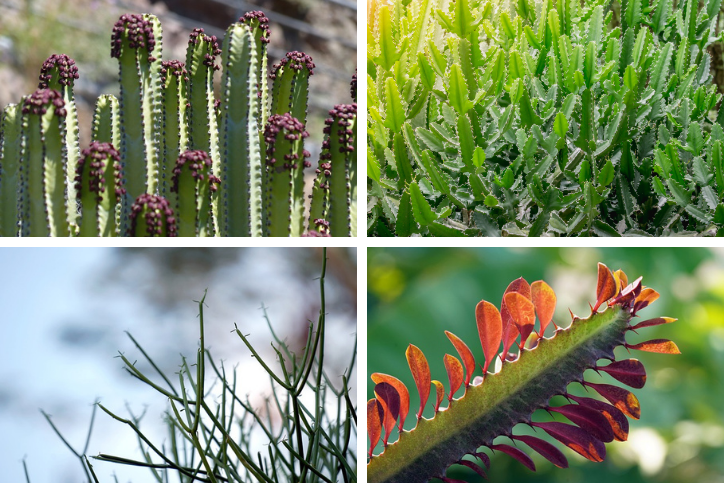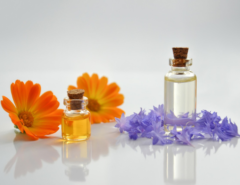Many people enjoy gardening. It’s a fun hobby with endless options of plants to choose from! Succulents are popular garden additions. They are valued for their hardiness, meaning they thrive in different temperatures, levels of light, and time between watering. Let’s dive deeper into succulents, their relative the spurge family, and how to keep you and your family safe if you have them in your home garden.
Succulents
Succulents are plants that have thicker fleshy leaves or stems that store water. Oftentimes, when people think of succulents, they think of the cactus family. However, not all succulents are cacti. Succulents refer to a broad group of plants-including not just the beloved cactus, but also the popular aloe and jade plants, and many others. Succulents vary in where they like to store water. Some only store water in their stems, others store water in their leaves, and others store water in their base. Most succulent plants come from deserts or very dry areas.
Spurge Family
Despite their similarities, not all succulents are created equal. Some succulents may come from the spurge family. Spurges are a special group of plants that require a little extra care. Spurges include plants such as the pencil tree (also known as a pencil cactus, but it is not a true cactus), cathedral cactus (despite the name, it’s not a cactus), crown of thorns, and malayan spurge tree, among others.
Dangers of Spurges
Spurges can cause trouble because they contain toxic latex, a milky white liquid. The plant uses latex to heal its injuries or defend itself against insects. Latex is different from the common plant sap, which is carries nutrients to different parts of the plant. Latex is very irritating to the skin, eyes, and mouth. If it gets on the skin, it can cause redness, itching, swelling, and pain. If it gets into the eyes, it can cause pain, watery eyes, and changes in vision. If swallowed, it can cause pain to the mouth and throat, nausea, and vomiting. Swallowing pieces of the plant can be a choking hazard.
Exposure to the latex commonly occurs when gardeners are trimming or moving these plants. If you are going to be working with these plants, wear long sleeves, goggles, and gloves. Be sure to keep them out of reach of children and pets. People with latex allergies should also try to avoid these plants as they may be more likely to react to them.
First Aid
If someone comes into contact with latex, immediately flush any exposed skin or eyes with lukewarm (not hot) water for 15 minutes. If the latex is swallowed, rinse the mouth with water. These first aid steps are usually all that is needed for treatment. Sometimes exposures may require you to see a health care provider to receive more treatment. Always call the Maryland Poison Center (MPC) at 1-800-222-1222 after performing the above first aid steps. Do not wait for symptoms to call. Poison specialists are available 24/7 to help with exposures to spurges and other plants.
Amber Ferrell, PharmD
Certified Specialist in Poison Information





Leave a Reply